

Videos of the presentations in original language available here
What was born just a few months ago as an ambitious idea was realized yesterday and with great success. The plenary room 4 was small for the large audience that participated in the debate with representatives of local and international entities on the regulation of online gaming in Brazil. Twenty speakers who traveled especially to Brasilia from different countries contributed their experiences, with presentations full of information, statistics, comparisons and best practices for the construction of the Brazilian model.
Deputy Evandro Roman, from the PSD of Paraná and member of the Sports Commission, who proposed the public hearing, presided over the session in which his colleagues Delegado Pablo, Fernando Monteiro and Danrlei de Deus Hinterholz also took the floor. Everyone appreciated the presence of the guests who agreed to participate.
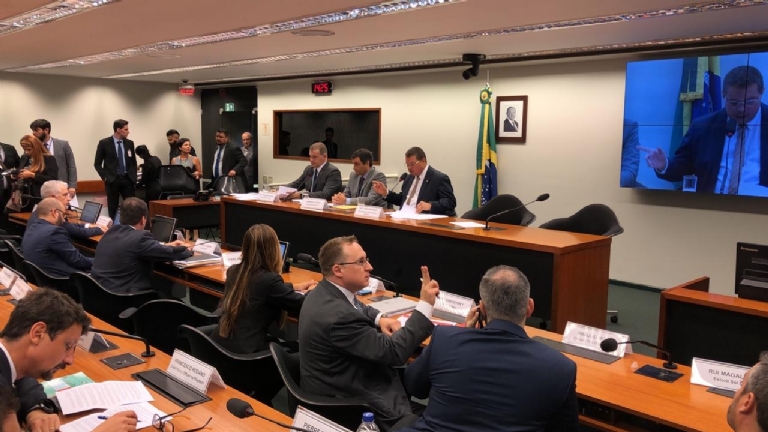
Consulted by the presence of representatives of SECAP (Secretary of Evaluation of Public Policies, Planning, Energy and Lottery), the body of the Ministry of Economy in charge with regulating online sports betting, deputy Roman clarified that they were taken the invitation but unfortunately for issues related to the tender of LOTEX (today the proposals must be delivered) could not be present. In any case, the Sports Commission committed itself to send them shorthand copies, videos and the presentations of the audience guests.
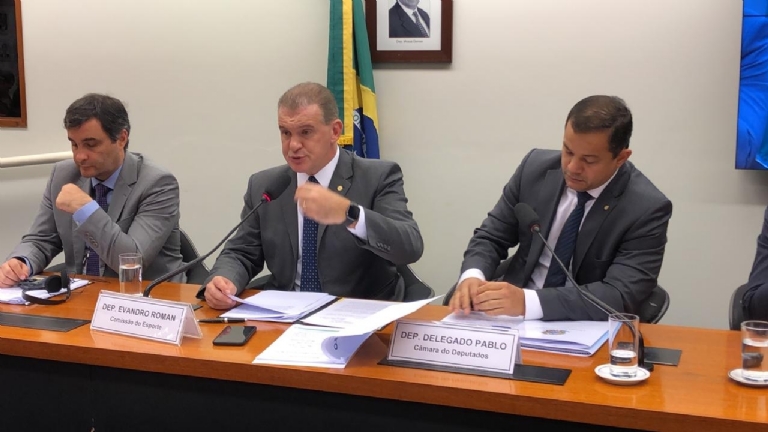
Witoldo Hendrich Jr (Partner of Online IPS Payment Administration and Specialist in Regulation of Gaming), Roberto Carvalho Fernandes (Partner of Brasil Fernandes Advogados) and Edgar Lenzi (CEO of BetConsult and Lawyer of LenziAdvocacia), besides being speakers, also had the function to introduce the representatives that had 10 minutes each for their speeches.
"Everyone feared that by regularizing the gaming market they would lose support from their voters. So we had to take it easy and regulate one game at a time, a process that lasted nine years. But today Italy is the second largest regulated market in the world. There are servers whose role is to draft and pass laws, as I have been. My suggestion is to listen and trust them, because betting is a very complex industry and it is necessary that people with right skills suggest the right way forward. Of course, only after political decisions have been taken," suggested Francesco Rodano, Chief Policy Officer at Playtech and former Italy Gaming Controller.
"The fact that Brazil has successively postponed regulation only means that gaming continues to exist without protecting the population, without invigorating the industry, without creating jobs and without raising taxes. This happened in other countries and they all regulated for this reason. In Portugal in the last 10 years, up to 2017, there was 68% of public playing in the illegal market, and the last study in 2018 reached 75%. This means that although regulated, Portugal continues to grow the illegal market to the detriment of the legal market. And the big reason is a wrong taxation model," warned Rui Magalhães, CEO of Estoril Sol Digital.
Tiago Horta Barbosa, Director of Business Development at Sportradar, focused on sports integrity as a key point: "The regulation of the betting sector is essential for the integrity of competitions, for the integrity of sports. Leaving the market to function irregularly is immensely harmful and brings high risks to the integrity of competitions. The supervision of the market must be in charge of the public authorities, but also of the sports entities. It's essential. Not doing this is killing the golden egg hen. The betting market is healthy for the economy, it is positive, but it must be treated with due care.”
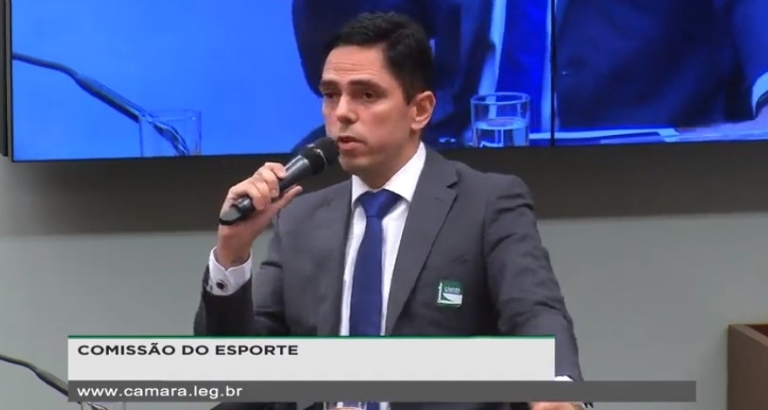
The specialist lawyers also contributed their vision, as the case of Roberto Carvalho Fernandes, Partner of the Brasil Fernandes Advogados Office: “By legalizing sports betting with Law 13,756, we do not legalize a game of chance. The lottery does not fit into the concept of gambling in Brazil. In gambling the goal is always for profit. The purpose of Law 13,756 in bringing light to sports betting was mainly to seek resources for four important areas of Brazilian society: social security, public safety, education and sports,";
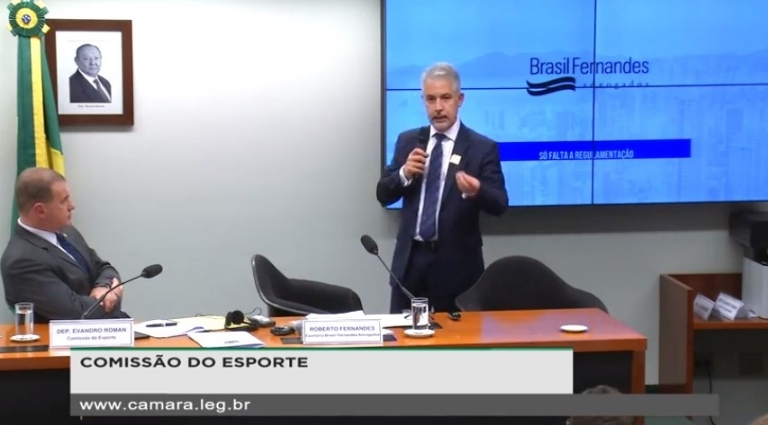
Luis Felipe Maia, Partner of FYMSA Advogados and specialized in Sports Betting Regulation by the University of Las Vegas (UNLV) explained that “it is better to tax the operator, and if it is not possible then use the same methodology of the stock market in which losses can be compensated. Mandatory onlays are too high and need to be revised, they need to be made from turnover (bets volume). Tax on services can generate a fiscal war. This thing can make operations unfeasible."
"We see many deputies and senators who are against gambling and the main flags are money laundering and gambling addiction. And the truth is the gaming environment that we know a lot out there, where none of these real and legitimate concerns are taken to a point that are irreversible," said Witoldo Hendrich Júnior, partner of Online IPS Payment Administration and Specialist in Regulation of Gaming.
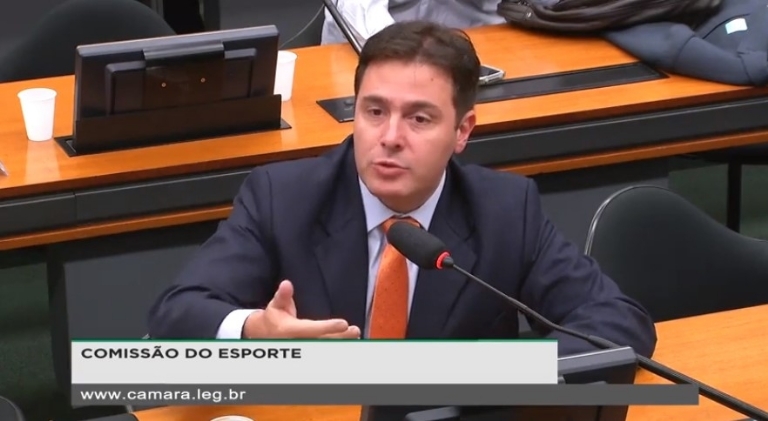
For Edgar Lenzi, CEO of BetConsult and Lawyer of LenziAdvocacia, “there is nowhere in the world with perfect legislation and regulation. There is no model to be applied in one country or another. Each country has its divergence, conflicts and specific tax issues. Brazil, on the subject of taxation, is a complex country. To discuss this is extremely complex and if we had discussed this, we might not have been discussing regulation here."
“Gambling has always been a major revenue stream for governments. For all of them. The Great Wall of China was built based on the local lottery; Harvad, Ieiow, were founded with lotteries. The Brazilian legislator can have as reference the way the Portuguese state handled the taxation. The Portuguese rates are very high and does not make a competitive market, but there are positive aspects like sports betting working in an open regime, with no monopoly," explained Óscar Madureira, (Rato, Ling, Lei & Cortés - Lawyers and Notaries - Macau/Lisboa).
The world specialists in regulation also gave their vision. Karen Marcela Sierra Castrellon, Director of Government Relations and Business Development for Latin America and the Caribbean at Gaming Laboratories International (GLI), said that "it's important to ward off crime from gaming, but also from the labs. The government has to ensure that there are criminal background checks, technical criteria, with participation of mathematicians, technicians, and complete independence. If we have all this, we will ensure transparency and accountability."
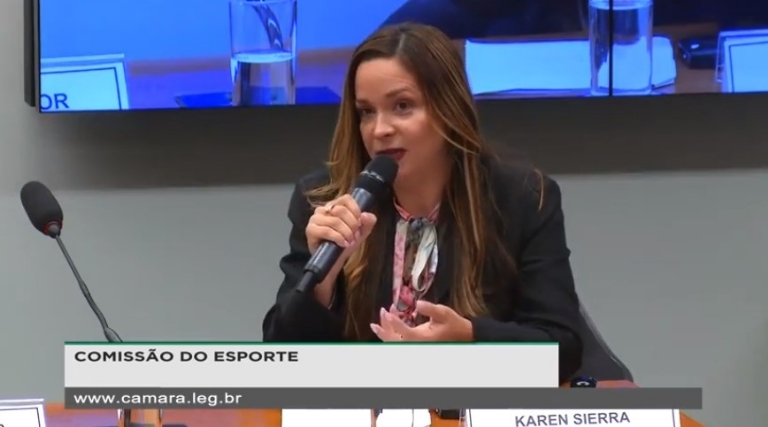
For his part, Gene Chayevsky, Executive President of European-Latin America Region BMM Testlabs, commented that "a severe regulation is necessary, especially to protect against market failures and to ensure that you have the desired results with legalization. Keep the crime out, ensure the rules of what is going to happen and, of course, protect minors and elders against gambling addiction.”
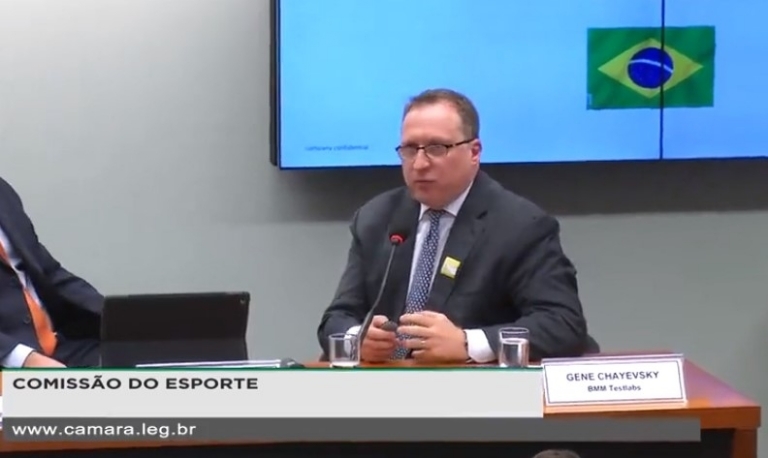
“If the taxes are very high, aggressive, it is going to make it difficult for Brazil since the investments we must make are large and the margins must accompany the operation. And this return must be known in advance. I even think that eSports and fantasy games should be included in this law because of the importance they already have in this country. The Government must have a department that controls that there are no fixed games. That already happened here in Brazil and it is something important to mention for us. It conspires against the cleanliness of the business. We are already partners of Arsenal football club in England. In Brazil we could make large investments in Flamengo and other popular clubs. We want to make a big investment, but we need to have the doors opened,” stated Anna Shahbazyan, Director of Latin America at BetConstruct.
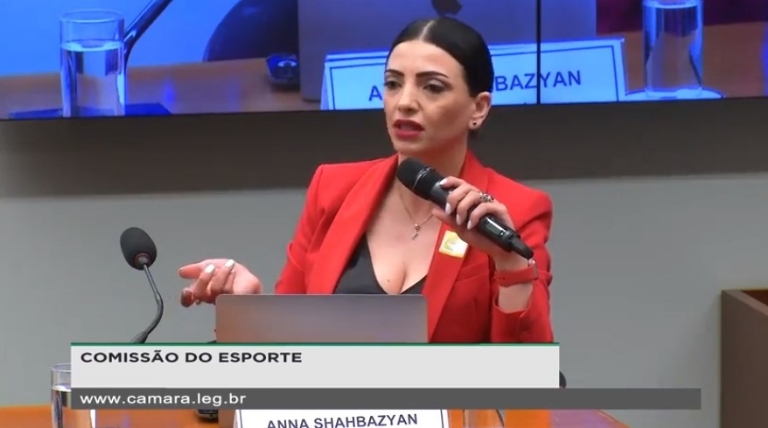
If it's about sports betting, the world of football could not be absent. “We want to use the football media to leverage these products. We want to participate and contribute so that we can do our best and be exemplary for the outside world", said Vicente Cândido, Director of Institutional and International Relations of the Sport Club Corinthians Paulista.
"We left here this afternoon with the certainty that we are moving towards regulation. The CBF understands that regulation, besides bringing tributes to the country,it is very salutary for the future of sports because it will provide sponsorship, publicity and will benefit from a direct part with the collection of lotteries. Whenever invited, the CBF will be present in the discussions related to football," added Luiz Felipe Santoro, Legal Advisor of the Brazilian Football Confederation.
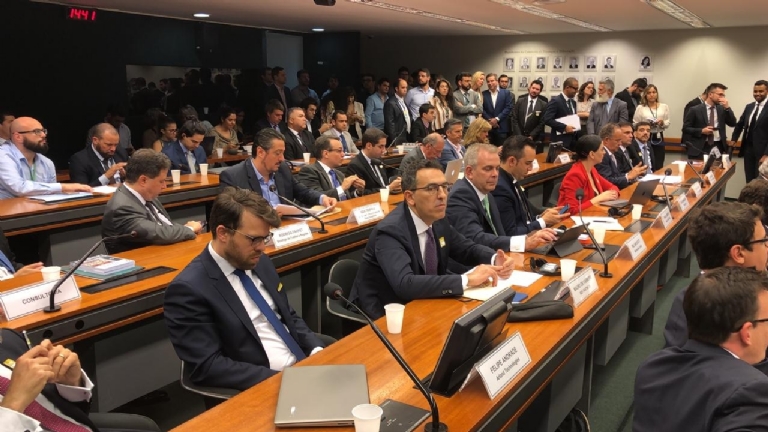
In addition, also presented their ideas Brado Do Carmo Vieira De Melo, Delegate of Federal Policy and Chief of Staff of Federal Deputy Delegate Pablo; Ricardo Amado Costa, Vice-President of the Brazilian Federation of Lotteries (Febralot); Igor Trafane, President of the Pan-American Confederation of Poker Sports; Mauro De Fabritiis, MAG - Regulator (Spain and Colômbia); Pierre Tournier, Director of Government Relations for the Remote Gambling Association (RGA); William Scott, of Meridian Worldwide; and Germano Lincoln, Director of 89 Investimentos.
Also invited to the audience were Daniel Lamberti, Meridian Worldwide Chief Operating Officer; Andre Feldman, WSOP Brazil Executive Director and Caesars Representative in Brazil; Aleksander Santos, Director of Government Relations for the Flamengo Regatta Club; Rodrigo Farret, Botafogo Football and Regattas; João Vicente Pereira Morais, Goiás Esporte Clube; Martin Redman, Bet 365; Sergio Jardim, Clarion Events; Custódio Neto, Fortaleza Esporte Clube; Valdinei Silva, Cascavel Football Club; Felipe Andrade, Arland Technologies; and Olavo Sales, president of ABRABINCS, among others.
Source: Exclusive Games Magazine Brasil